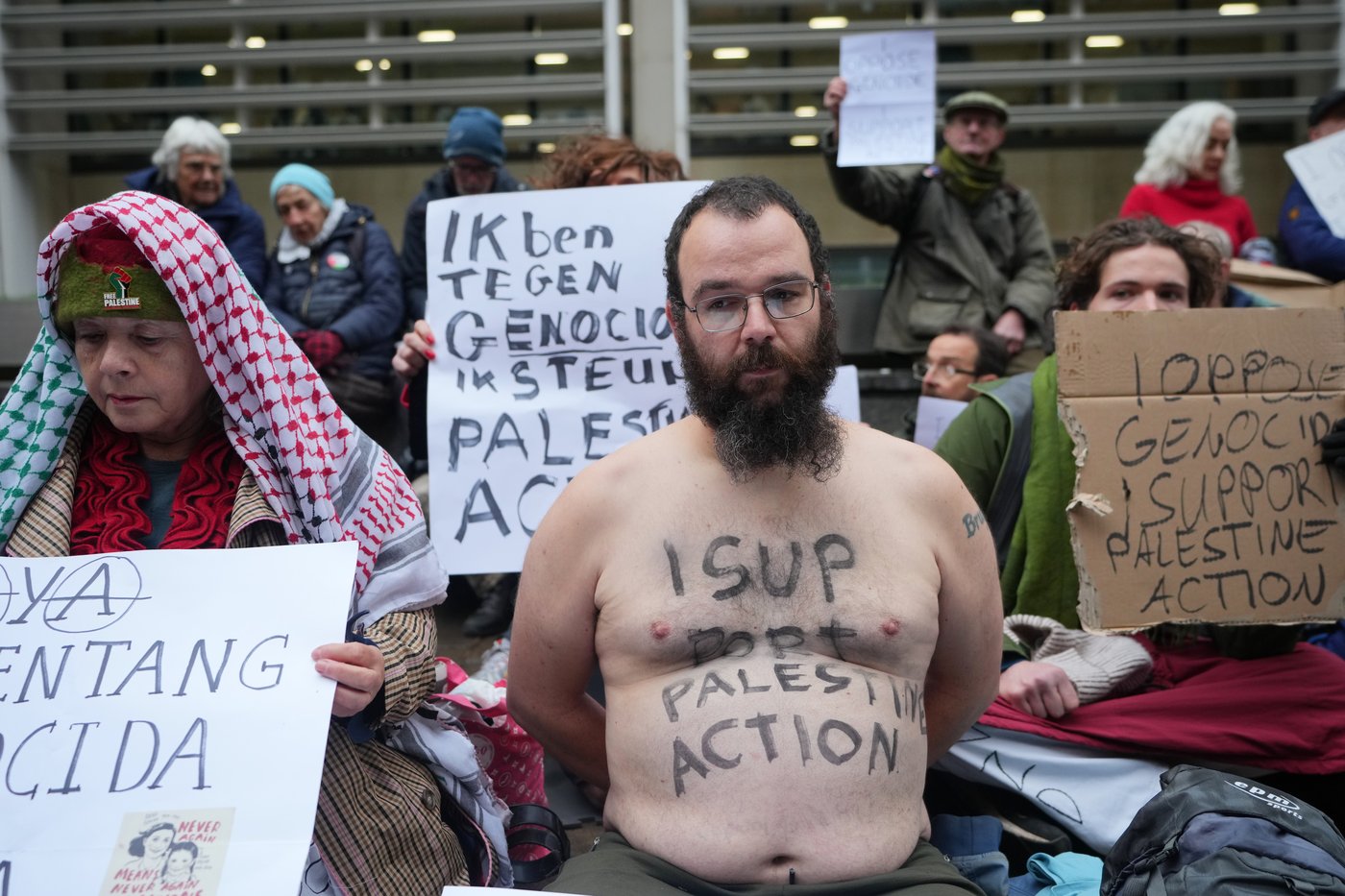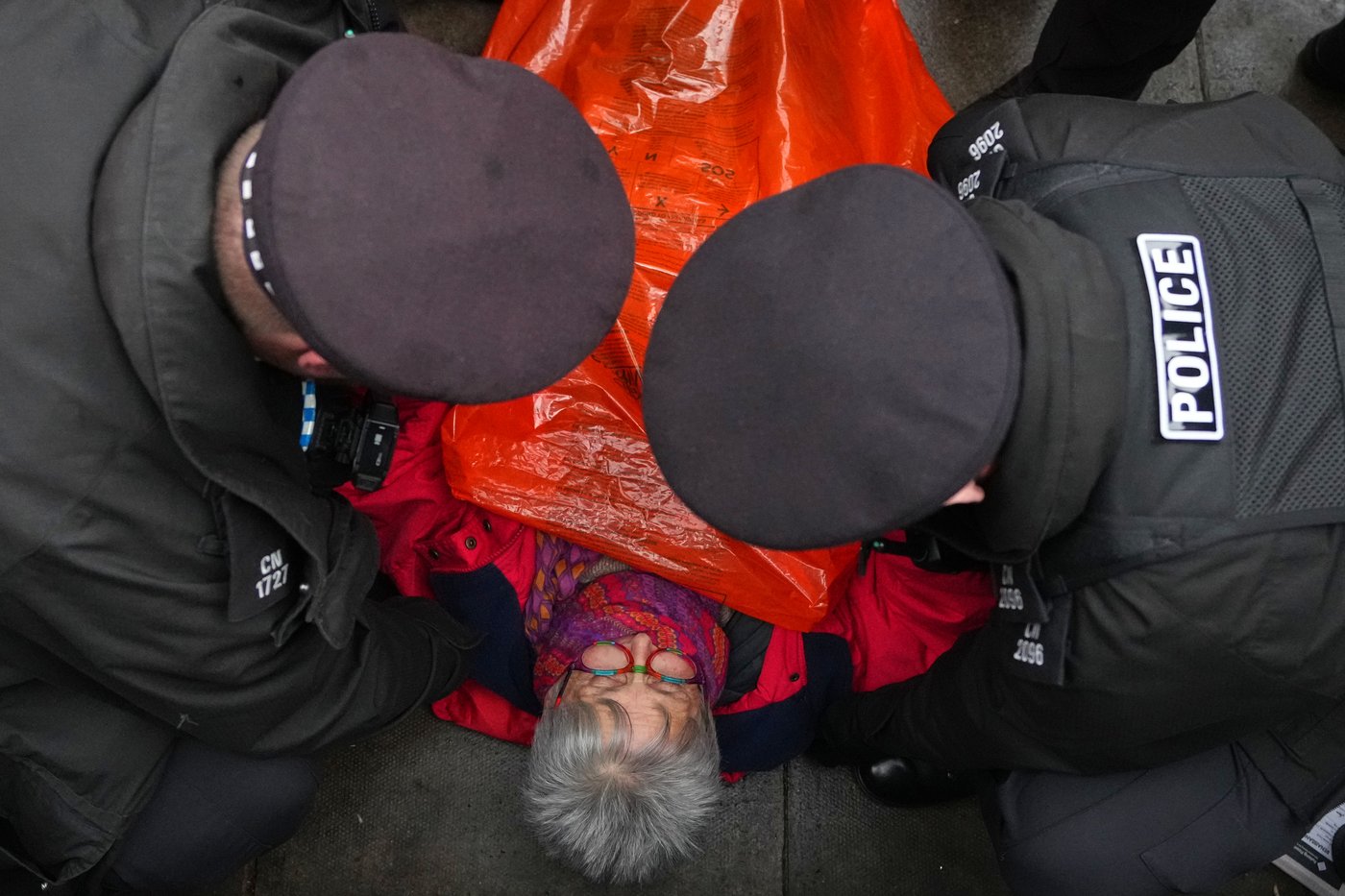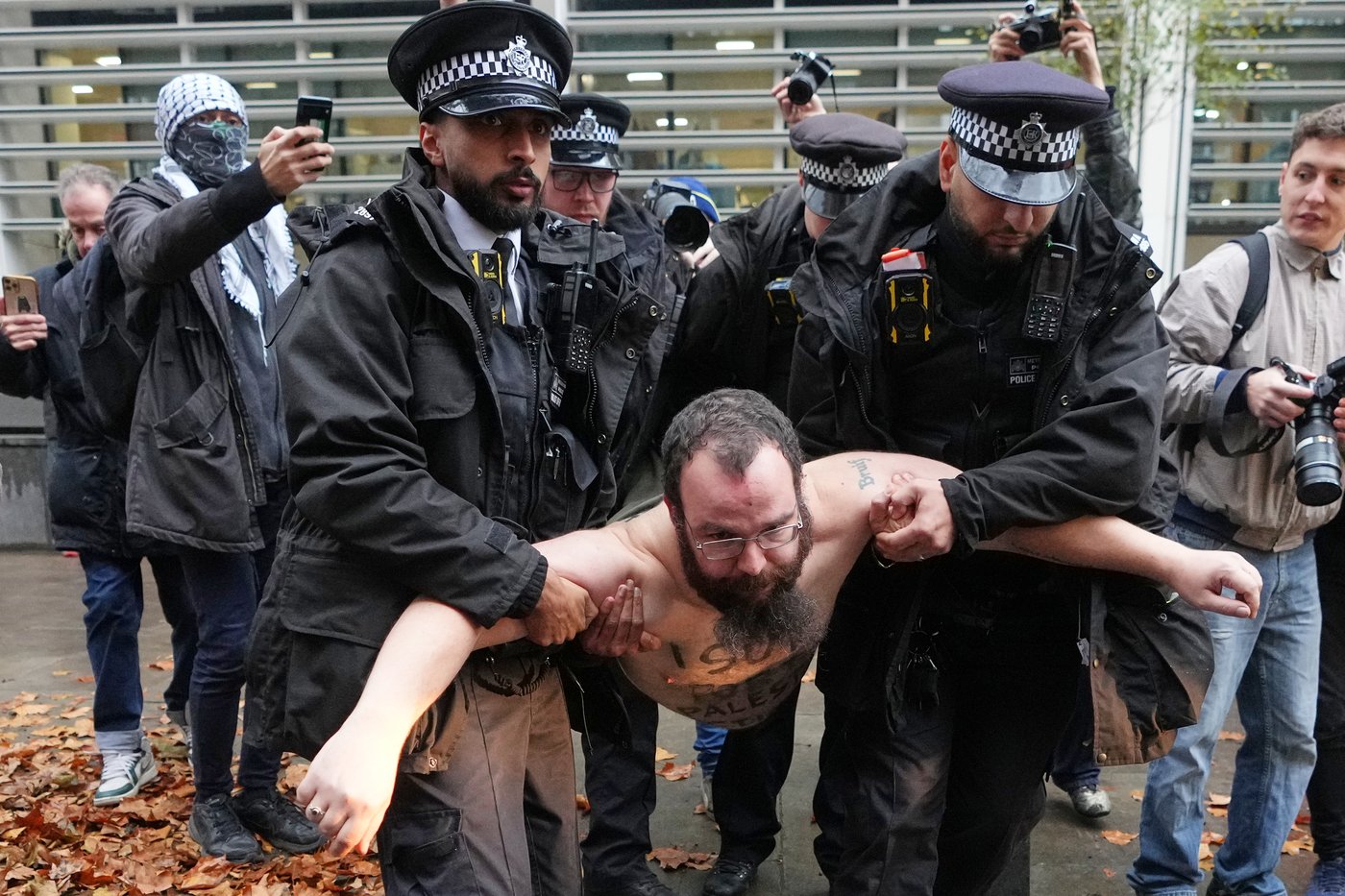Elevate your local knowledge
Sign up for the iNFOnews newsletter today!

LONDON (AP) — Lawyers for a pro-Palestinian protest group that has been outlawed by the British government went to court Wednesday in a bid to overturn its classification as a terrorist organization.
Palestine Action is asking the High Court to rule that the government erred in classing it as a terror group alongside the likes of al-Qaida and Hamas.
Raza Husain, a lawyer for Palestine Action co-founder Huda Ammori, said the ban was an “ill-considered, discriminatory, due process-lacking, authoritarian abuse of statutory power.”
The government banned Palestine Action after activists broke into a Royal Air Force base in June to protest British military support for Israel’s war against Hamas in Gaza. The activists sprayed red paint into the engines of two tanker planes and caused further damage with crowbars.
Palestine Action has carried out direct action protests at military and industrial sites in the U.K. since it formed in 2020, including breaking into facilities owned by Israeli weapons manufacturer Elbit Systems UK. Officials say the group’s actions have caused millions of pounds in damage that affect national security.
Proscription made membership of, or support for, the group a crime punishable by up to 14 years in prison.
More than 2,000 people have been arrested across the U.K. since the ban for holding signs at protests saying “I support Palestine Action.” More than 130 have been charged under the Terrorism Act.
Dozens of supporters of the group protested outside the High Court at the start of the three-day hearing on Wednesday, and several were arrested.
Supporters of Palestine Action and civil liberties groups say the arrests for peaceful protest ride roughshod over free speech and the right to protest.
“Direct action and civil disobedience are not simply to be tolerated, but valued,” Husain said during Wednesday’s court hearing. “It is an honorable tradition, both in our common law and in any liberal democracy with a developed understanding of the rule of law.
“The suffragettes would have been liable to proscription if the Terrorism Act 2000 regime had been in force at the turn of the 20th century,” he added.



Want to share your thoughts, add context, or connect with others in your community?
You must be logged in to post a comment.